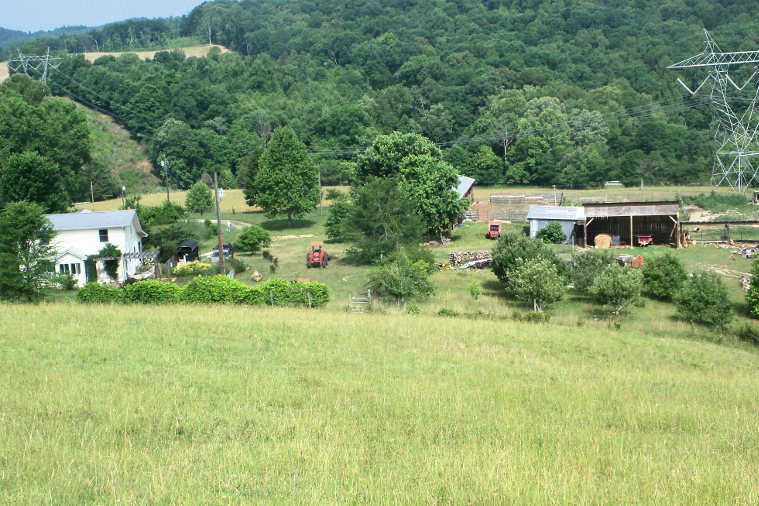We receive a lot of visitors to Winged Elm Farm. Most are thoughtful and respectful of our time, appreciative of what we have to offer. We enjoy the showing and explaining of our routines. For many, it is their first outing to any sort of farm. With that in mind, I offer this curmudgeonly guide to the dos and don’ts of a visit.

Somewhere
- Sturdy shoes don’t have suede: Bare-toed Birks among the clover, where the bees are busily gathering pollen; suede designer boots calf-deep in pig muck; Italian loafers tiptoeing through the sheep poop — all have all been worn by ill-prepared guests. A working farm means manure, nails, and insects that sting. There’s a good reason we warn you to wear sturdy footwear.
- “Arrive at 10” is not simply a suggestion: When we ask that you be here at 10 a.m., we expect you to arrive at 10. Not 9 and not 11. And certainly not 2 p.m., when we are just lying down for a nap. Farm work is never ending. We will be at it five minutes before you arrive and back at it five minutes after you leave. Letting you come to “see” the farm is, in our mind, a treat and a courtesy. Respect the offer and watch the clock. Be aware, too, the subtle signal to end the visit. When we say “Better settle in and help us do some work,” don’t be surprised if we hand you a pitchfork when you don’t take the hint.
- Pets are accidents in waiting: Don’t bring your dog. Yes, he is the light of your life. And, of course, everyone deserves to scratch his fluffy head. He is well-behaved, you have perfect control … until he sees his first chicken or his first flock of sheep. Or much worse, our varmint-killing farm dog catches sight of this unexpected intruder. Tears will ensue, trust me.
- Children, Part 1 — playing with electric fencing: Our farm contains miles of electric fencing. There’s a reason it keeps cattle, sheep, and pigs in their respective places. We will point it out as you stroll the farm. Don’t touch it or pee on it. Don’t let your kids touch or pee on it. (Yes, that’s your responsibility.) When your darling daughter reaches down and grabs a six-joule hot wire … again, tears will ensue, trust me.
- Children, Part 2 — harassing, damaging, or killing livestock: When your son squeezes the baby chick so tightly he squishes it, there is a proper first response. No, it is not consoling the crying boy. It is placating the horrified farmer, whose future egg layer hangs limp from chubby fingers. It is he who deserves consolation, if not at least the offer of compensation.
- Children, Part 3 — staring at screens: You thought getting the kids out of the house to see a farm was a great idea, right? We do too. That’s why we must insist that they refrain from wasting their visit staring at a tablet or iPhone. Leave the digital devices in the car.
- Gates work best when latched: There are dozens of gates on this farm, and they all serve the same purpose: keeping the livestock contained. Feel free to walk the farm, but do close the gates behind you. And, yes, closing means latching.
- Don’t call it a hobby farm: We understand, the farm is fun and its animals cute. But, we work to make it pay for itself and support our basic needs. The term “hobby farm” is a slur to the working rural community.
- These are not therapy animals, and this is not a petting zoo: Remember that we raise animals to be slaughtered and eaten. While they are on our farm, they are treated with respect, fed and housed and handled with care. They are not here to be cuddled or coddled, but to provide protein and good taste for yours and our dinner plate. Admire them, even pet them under supervision. But keep the life cycle in perspective while visiting.
- It’s all fun and games until someone gets sucked into the baler: There are a million ways to be injured or even killed on a farm. This is not an OSHA-sanctioned environment. Keep a close watch on your youngsters and husbands. And that fancy scarf around your neck? It is a magnet for a PTO shaft. You really don’t want to find out what that means.
- You are welcome to buy something: We don’t charge to visit, although some farms do. But if you need eggs, veggies, honey, beef, pork, lamb, chicken, or even lumber, we have all available to sell.
- Dinner is served: We are generous with our time, and, truly, we are glad to have you visit. Be respectful, show an interest, and ask questions. And, if invited, we hope you’ll accept our offer to stay for dinner.






